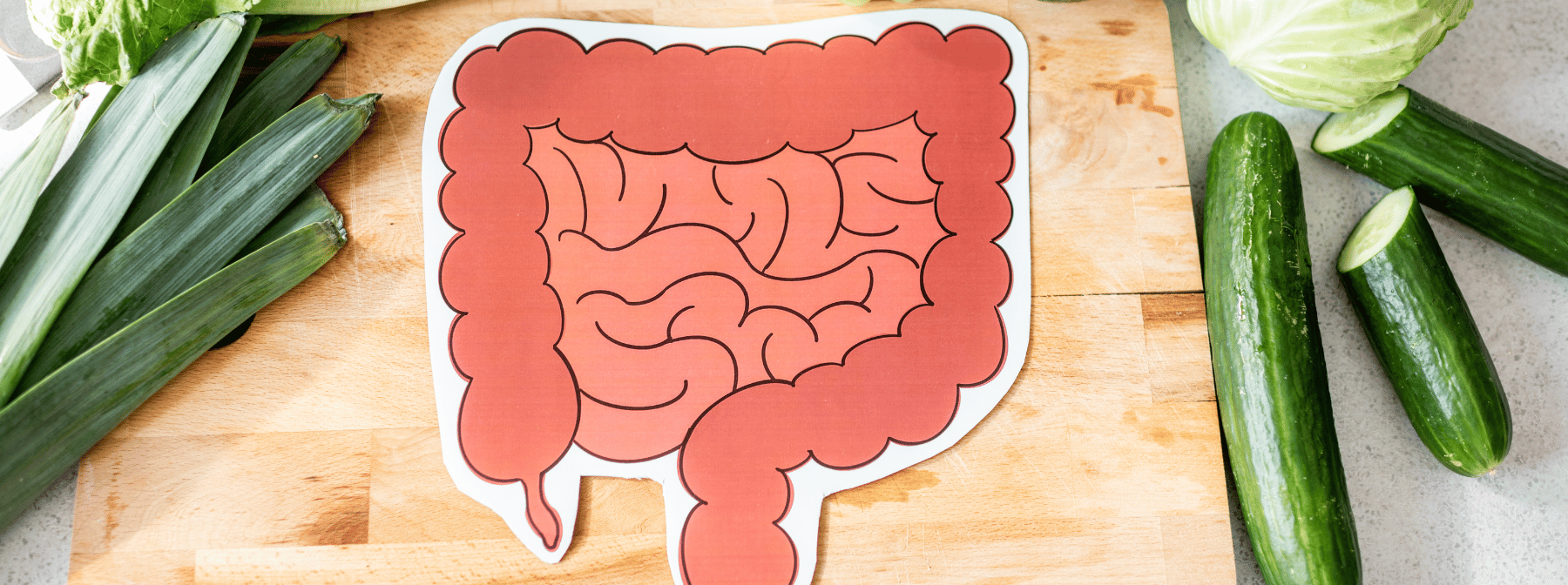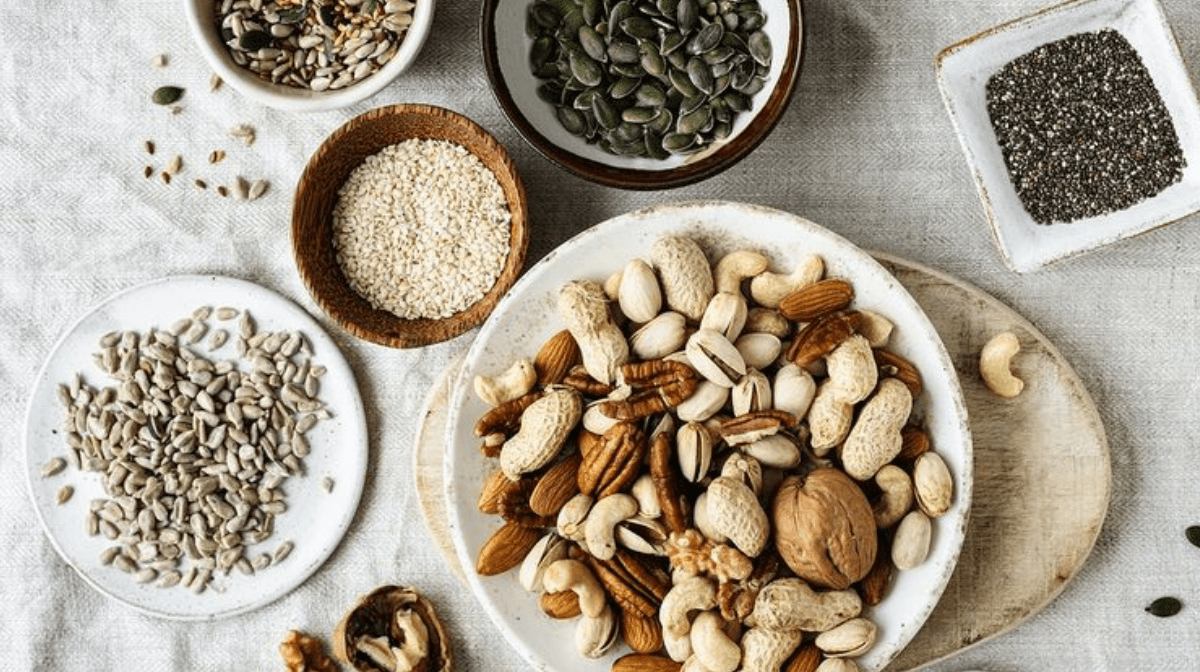
In recent years, we’ve become more and more aware of how important our gut health is to our overall wellbeing. From how often we get sick, to how we feel every day, our gut has a huge influence.
Read on to learn how your brain and gut interact with each other and how you can keep yours healthy.
- What Is The Gut-Brain Connection?
- How Can Good Gut Health Improve Your Mood?
- How Does Nutrition Affect Gut Health?
- What Are The Best Gut Health Foods?
- What Are The Best Gut Health Drinks?
- FAQs

What is the gut-brain connection?
The gut-brain connection is the two-way network linking the gastrointestinal tract (the gut) with the central nervous system (the brain). This intricate communication system involves complex interactions between your neural, hormonal, and immune pathways.
At the heart of this connection lies the enteric nervous system (ENS), a network of neurons intricately woven into the lining of the gastrointestinal tract. Often hailed as the "second brain" the ENS governs digestive processes and releases key neurotransmitters like serotonin.
Communication between the gut and brain occurs primarily through the vagus nerve. This nerve goes from your brain all the way down to your stomach and transmits signals from the gut to various brain regions.
Your gut microbiome, composed of trillions of microorganisms, are essential in the gut-brain axis. These symbiotic microbes produce neuroactive compounds, regulate neurotransmitter synthesis, and modulate immune function, having a huge impact on how your brain functions.
How Can Good Gut Health Improve Your Mood?
The gut holds the key to more than just digestion—it's intricately linked to your emotional wellbeing. A balanced gut microbiota produces neurotransmitters like serotonin and dopamine, which are essential for regulating mood.
By nurturing a healthy gut ecosystem through mindful eating and lifestyle choices, you support the production of these neurotransmitters, helping your everyday mood.
Prioritising good gut health isn't just about digestion; it's about laying the groundwork for mental and emotional vitality.
How Does Nutrition Affect Gut Health?
What you eat directly influences your gut health. Choosing a diet rich in fibre, fruits, vegetables, and fermented foods provides crucial nutrients and prebiotics that nourish beneficial gut bacteria. Prebiotics, acting as fuel for these microbes, help sustain a diverse and resilient gut microbiome.
On the flip side, diets high in processed foods, sugars, and saturated fats can upset the balance of gut bacteria, leading to dysbiosis—a condition marked by an imbalance in the gut microbiota composition. Dysbiosis is associated with gastrointestinal issues, inflammation, and mental health concerns.
Hence, embracing a balanced diet rich in whole, nutrient-dense foods is essential for fostering optimal gut health and supporting the harmonious relationship between the gut microbiota and overall wellbeing.

What Are The Best Gut Health Foods?
For optimal gut health, choosing the right foods can be transformative. This section explores a selection of nutrient-rich foods known to nourish and support the diverse ecosystem of the gut microbiota.
1. Chia Seeds
Chia seeds are packed with fibre, omega-3 fatty acids, and antioxidants, all of which contribute to gut health. Their soluble fibre content aids in maintaining regular bowel movements and fostering the growth of beneficial gut bacteria, promoting digestive health. Furthermore, the anti-inflammatory properties of chia seeds may help alleviate gut inflammation and bolster a balanced gut microbiome (2).
2. Oats
Oats offer numerous benefits for gut health. Packed with soluble fibre, oats serve as a prebiotic, fostering the growth of beneficial gut bacteria and supporting a balanced microbiome. Compounds like beta-glucans found in oats have also been associated with reduced gut inflammation and improved gut barrier function (3).
3. Yoghurt
Yoghurt is well-known for its probiotic content, which includes live beneficial bacteria crucial for gut health. Eating foods with probiotics like yoghurt can aid in restoring and maintaining a healthy balance of gut microbiota, promoting improved digestion, strengthened immune function, and reduced gut inflammation.
On top of that, yoghurt is a nutrient-rich source of protein, calcium, and other essential nutrients, making it a great addition to a gut-friendly diet (4).
Most vegan-friendly yoghurts have a similar amount of probiotics as traditional dairy yoghurt, so you can get the same benefits whether you follow a plant-based diet or not.

4. Sauerkraut
Sauerkraut, a fermented cabbage dish, is renowned for its potential benefits for gut health. Through the fermentation process, natural bacteria convert cabbage sugars into lactic acid, creating an acidic environment that fosters the growth of beneficial probiotic bacteria (5).
5. Chickpeas
Rich in soluble and insoluble fibre, chickpeas support digestive health by promoting regular bowel movements and aiding in the maintenance of a healthy gut microbiota. Additionally, chickpeas contain resistant starches, which resist digestion in the small intestine and reach the colon intact, where they serve as a source of nutrition for beneficial gut bacteria (6).
What Are The Best Gut Health Drinks?
As well as gut-friendly foods, there are also several drinks packed with the same pre- and probiotic ingredients. These drinks offer benefits for digestive wellness and the cultivation of a healthy gut ecosystem.
1. Kombucha
Kombucha, a fermented tea beverage, results from fermenting sweetened tea with a symbiotic culture of bacteria and yeast (SCOBY). Throughout fermentation, beneficial bacteria and yeast generate probiotics, organic acids, antioxidants, and enzymes.
All of these elements foster a healthy gut microbiome, aid digestion, and bolster immune function. The antioxidants in kombucha help alleviate oxidative stress and inflammation, boosting your overall wellbeing (7).
2. Apple cider vinegar (ACV)
Apple cider vinegar (ACV) is made through the fermentation of apple cider with yeast and bacteria, yielding acetic acid, enzymes, and beneficial probiotic bacteria. Its acetic acid aids digestion by prompting stomach acid production and enhancing nutrient absorption. ACV's alkalising effect also balances gut pH levels, alleviating acidity and inflammation (9).
3. Prebiotic drinks
Selfish is a sparkling drink formulated with prebiotic chicory root inulin that nourishes beneficial gut bacteria, promoting a healthy gut microbiome. They provide a convenient way to incorporate prebiotics into your daily routine, supporting digestion, nutrient absorption, and immune function (10).
Talk To Your Doctor
Myvegan are not making any medical or nutritional claims in this article. If you are experiencing gut health or mental health issues, symptoms of a mood disorder, or looking to improve the health of your gut, consult with your doctor.
Take Home Message
Understanding and prioritising gut health are essential for overall wellbeing and vitality. Through discovering the best foods and drinks that support digestive wellness, we can understand how to find balance within our bodies, promoting digestion, immune function, and emotional resilience.
If you are looking to improve your gut health or support your mental wellbeing from the inside out, consider incorporating these prebiotic and probiotic-rich foods and drinks into your routine.

FAQs
How is the gut and brain connected?
The gut and brain are interconnected through a bidirectional communication network called the gut-brain axis. This system involves neural, hormonal, and immunological pathways facilitating continuous communication between the gastrointestinal tract (the gut) and the central nervous system (the brain). Signals traverse via the vagus nerve and neurotransmitters, hormones, and immune factors, influencing digestion, mood regulation, and immune function, among other physiological processes.
Can gut problems affect the brain?
Yes, gut problems can affect the brain. The gut-brain axis facilitates bidirectional communication between the gut and the brain, meaning disturbances in gut health can impact brain function and vice versa. Research suggests that digestive and gut issues may contribute to mood disorders and cognitive dysfunction.
What foods help the gut-brain axis?
Fibre-rich foods like fruits, vegetables, whole grains, and legumes help nourish beneficial gut bacteria and support digestive health. Probiotic-rich foods such as yoghurt, kefir, and fermented vegetables introduce beneficial bacteria into the gut, promoting a balanced microbiome. Additionally, prebiotic-rich foods like garlic, onions, bananas, and oats provide the necessary fibres that feed and stimulate the growth of beneficial gut bacteria, fostering a healthy gut-brain axis.
How do you balance the gut-brain axis?
Balancing the gut-brain axis involves adopting a holistic approach that encompasses various lifestyle factors. Key strategies include consuming a diverse and nutrient-rich diet high in fibre, probiotics, and prebiotics to support gut health. Managing stress through techniques like mindfulness, meditation, and adequate sleep also plays a crucial role in maintaining balance. Regular exercise, staying hydrated, and minimising exposure to toxins and harmful substances further contribute to a balanced gut-brain axis.

Related Articles










